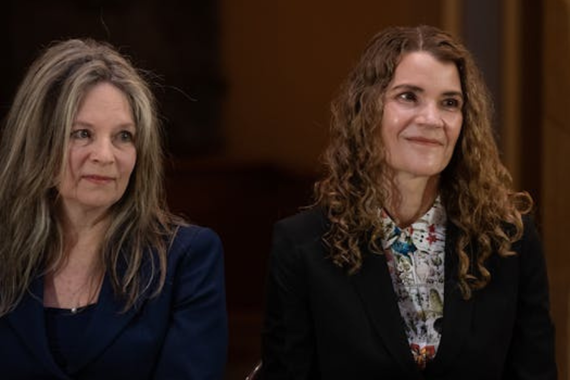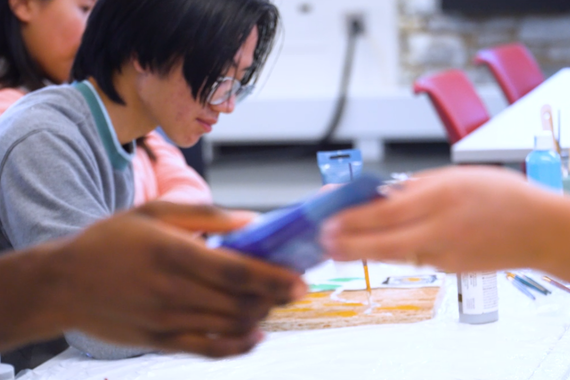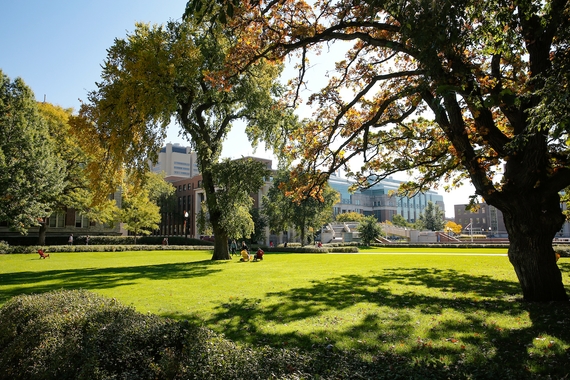Citti’s Call to Philanthropy Nurtured by Pursuit of Life-long Learning
During his daily seven-mile run, James Citti often reflects on what he’s learning in his most recent class at the U of M. He also thinks about conversations with the students he gets to know in those classes. Both have given him a lot to think about and a lot to do.
Born in California, Citti holds a BS in chemical engineering from San Jose State University, a MS in chemical engineering from the University of Colorado, and a PhD in microbiology from Oregon State University. After graduate school, Citti accepted a job at Procter & Gamble, where he helped develop Pringles and enzyme-based cleaning products. It was a job in product development at The Pillsbury Company that brought Citti to Minnesota. At Pillsbury, and later General Mills, he helped develop refrigerated doughs, cake and frosting products, Old El Paso tortillas and dinners, and Toaster Strudel (his favorite flavor was strawberry).
A Beginning with American Culture and Arts
Upon retirement in 2005, Citti sought opportunities to continue doing meaningful work. He heard about the Senior Citizen Education Program option offering Minnesota residents aged 62 or older the opportunity to enroll in courses at all state-supported higher-education institutions for reduced costs, either to audit or earn college credit.
An avid reader, and with the U of M a walkable 1.5 miles from his Minneapolis home, he decided to enroll in American Culture and Arts taught by the late David Noble, one of the University’s longest-serving, beloved professors. The experience ignited an interest in “classes I hadn’t had the opportunity to take when I was getting my degrees,” Citti says.
Since then, Citti has taken one class every term—including summers. Most of the 44 classes he’s taken have been in the humanities: American studies, journalism, history, and cultural studies. Courses run from Cinema and Media Culture History and Religion and US Culture Wars to Puzzles in World Politics and Food in History.
At the start of the class, Citti talks with the teacher to set mutual expectations. “I don’t want to just sit there and doze off. I want everyone to be comfortable with what will benefit me and perhaps others in the class.” For a time, he would do the papers and presentations; now he focuses on the readings and classroom discussion.
Time to Do
Recently, that role took on a deeper commitment.
Over the years, Citti got to know some of the undergraduate students who sat next to him and their stories moved him. In addition to the normal stressors of college, many struggled with financial issues and other distractions Citti never encountered as a student. In fact, thanks to modest tuition and state support, he graduated with only a $100 loan taken out to purchase his first suit for job interviews.
Then this autumn, Citti took Chasing the American Dream: Economic Opportunity and Inequality in the US taught by Associate Professor Kale B. Fajardo. Following one of the class sessions, Citti and Fajadro were discussing neoliberal economics and the subsequent economic hardships many current students face, particularly when compared to the more booming post-war economy of the 1950s, topics Fajardo’s class critically analyzes. Fajardo then asked Citti if he ever thought about supporting students in the Department of American Studies or the humanities at UMN.
“It had been something that had been floating around in my mind for the last 10 years or so. It’s easy to procrastinate,” Citti recalls. “It was time to do something meaningful to help them.”
Now, undergraduate students in the humanities and specifically in four of his favorite departments—American Studies, Asian & Middle Eastern Studies, Cultural Studies & Comparative Literature, and History—will be recipients of need-based scholarships funded by Citti.
Fajardo commented, “Jim greatly added to our class discussions. He was a close reader of texts and also occasionally shared his life experiences, from which we all learned. We’re all really thrilled that Jim has decided to create scholarships for CLA students. Although the humanities are often underappreciated and underfunded, Jim really understands why they are important to developing a better understanding of the cultural, historical and political dimensions of a variety of problems that the world is facing today.”
This spring, Citti is enrolled in Introduction to American Indians and Indigenous Peoples taught by Alex Ghebregzi. It won’t be his last class; Citti doesn’t intend ever stopping his life-long pursuit of knowledge and a better understanding of the world in which he lives. And because of his philanthropy, neither will many future CLA undergraduates.



